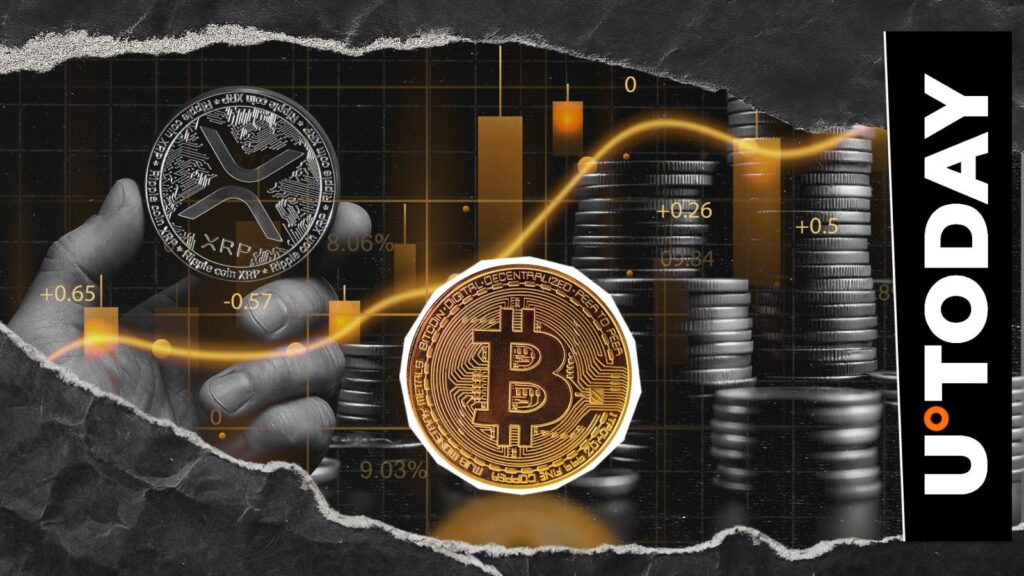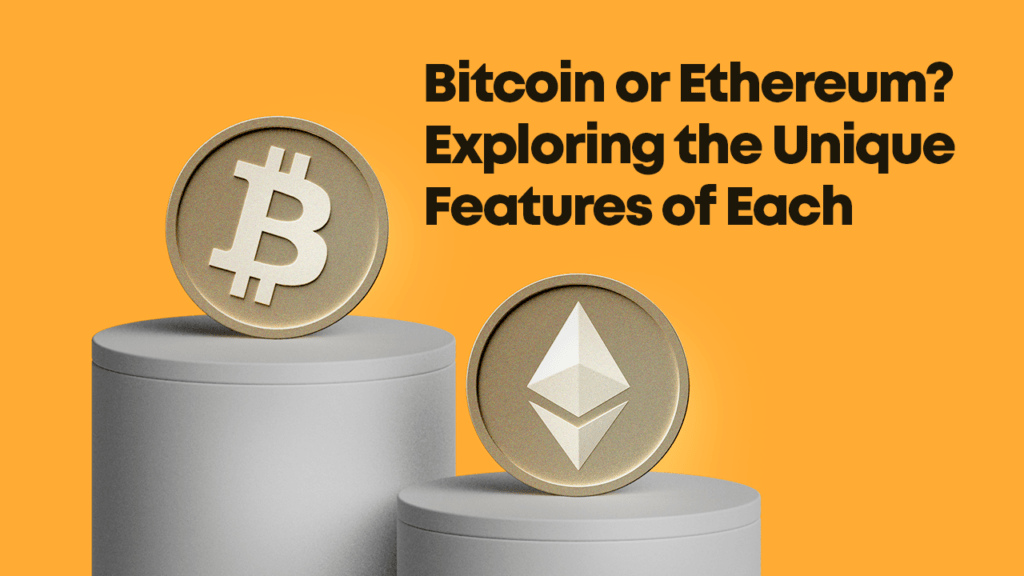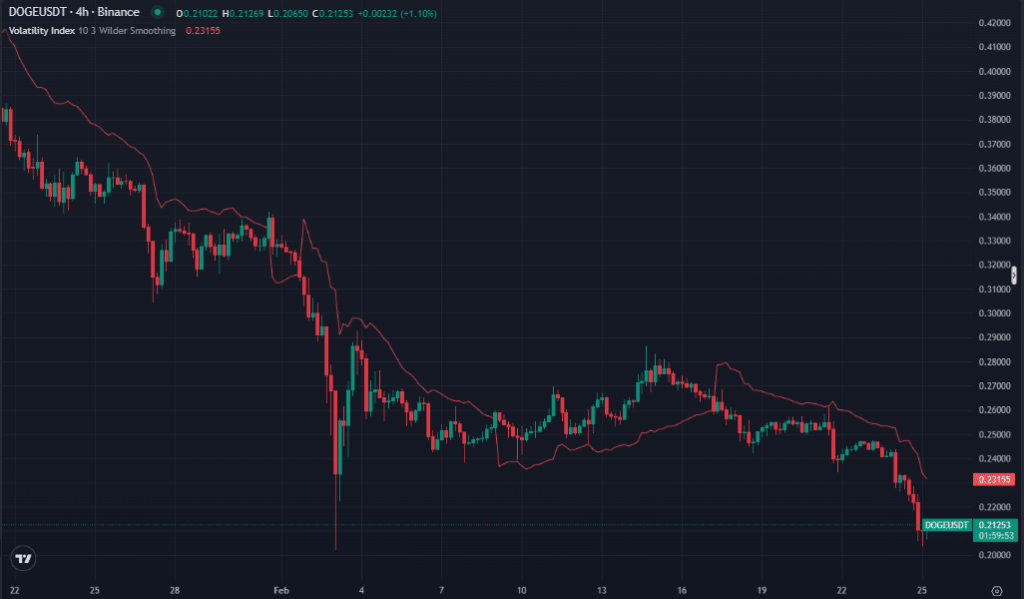BlackRock’s Bitcoin ETF IBIT Soars into Top 20 ETFs by Assets, Signaling Mainstream Crypto Integration

BlackRock’s IBIT Bitcoin ETF hits top 20 by AUM, marking a major milestone for institutional crypto adoption and mainstream financial integration.
Bitcoin Millionaire Addresses Soar Past 190,000: A Deeper Look into BTC’s Evolving Wealth Distribution

Bitcoin millionaire addresses exceed 190,000 in Q3 {current_date | date: ‘YYYY’}. Explore what this on-chain data signifies for BTC’s market dynamics and future adoption.
Bitcoin Surges Past $119K, But Overbought RSI Flashes Caution for Traders

Bitcoin soars past $119K, but overbought RSI signals a potential price retracement. Expert analysis for traders on current BTC market dynamics.
Ethereum ETFs Surge Ahead: Outpacing Bitcoin in Institutional Inflows as Altcoin Market Dynamics Shift

Ethereum ETFs have significantly outpaced Bitcoin ETFs in recent inflows, signaling a major shift in institutional crypto investment interest. Discover the implications.
Gold’s Parabolic Surge Ignites ‘Digital Gold’ Debate: Peter Schiff Predicts $20,000
Gold’s parabolic surge has Peter Schiff predicting $20,000, fueling the debate between traditional gold and Bitcoin as the ultimate store of value.
Staking (Proof-of-Stake): Many newer cryptocurrencies use a proof-of-stake (PoS) system. Instead of mining, users stake their existing cryptocurrency to validate transactions. The more cryptocurrency you stake, the higher your chances of being selected to validate a block and earn rewards. PoS is generally considered more energy-efficient than Proof-of-Work.
The world of cryptocurrency is constantly evolving, and with it, so are the mechanisms that secure and maintain these decentralized networks. One of the more popular and increasingly prevalent methods is Proof-of-Stake (PoS). This article explores what Proof-of-Stake is, how staking works, and why it’s gaining traction in the cryptocurrency space. What is Proof-of-Stake (PoS)? Many newer cryptocurrencies utilize a Proof-of-Stake (PoS) system as their consensus mechanism. In essence, PoS is a way to validate transactions and add new blocks to the blockchain. Unlike Proof-of-Work (PoW), which relies on computational power through mining, PoS leverages the existing cryptocurrency holdings of participants in the network. Staking: The Core of Proof-of-Stake Instead of mining, users participate in the network through a process called staking. Staking involves locking up a certain amount of your cryptocurrency in a special wallet or platform to help validate transactions. This locked-up cryptocurrency acts as a form of collateral. Here’s how it works: Validator Selection: The network algorithmically selects validators to propose and add new blocks to the blockchain. Chance Based on Stake: The more cryptocurrency you stake, the higher your chances of being selected to validate a block. Think of it as a lottery where your ticket number is proportional to the amount of cryptocurrency you’ve staked. Validating Transactions: Once selected, a validator checks the legitimacy of transactions included in a proposed block. Rewards: If the block is valid, the validator earns rewards, typically in the form of transaction fees and newly minted cryptocurrency. These rewards incentivize participation and help secure the network. Penalties (Slashing): Validators who act maliciously or attempt to validate fraudulent transactions can be penalized by having a portion of their staked cryptocurrency “slashed,” discouraging bad behavior. Advantages of Proof-of-Stake PoS offers several advantages over Proof-of-Work: Energy Efficiency: A significant benefit of PoS is its significantly lower energy consumption compared to PoW. Mining requires vast amounts of electricity, while staking requires minimal energy to run the validating software. This makes PoS a more environmentally friendly option. Security: While the security of PoS is a topic of ongoing debate, it can be argued that it’s more resistant to certain types of attacks, such as 51% attacks, as it would require acquiring a substantial portion of the total staked cryptocurrency, making it incredibly expensive. Lower Barrier to Entry: Unlike mining, which requires specialized hardware, staking generally has a lower barrier to entry, allowing more individuals to participate in securing the network. Conclusion Proof-of-Stake represents a significant advancement in blockchain technology, offering a more energy-efficient and potentially more secure alternative to Proof-of-Work. As the cryptocurrency landscape continues to evolve, PoS is likely to become even more prevalent, shaping the future of decentralized finance.
Bitcoin or Ethereum? Exploring the Unique Features of Each

Bitcoin or Ethereum? Understanding the difference between Bitcoin and Ethereum and their complementary roles can help investors make informed decisions and effectively diversify their crypto portfolios. Bitcoin and Ethereum dominate the world of cryptocurrencies. Both are groundbreaking digital assets, yet they serve different purposes and have unique features that set them apart. This article delves into each, providing crypto enthusiasts and financial investors with a clear understanding of each. What is Bitcoin? Bitcoin, launched in January 2009, was the first cryptocurrency to be introduced. Often called “digital gold,” Bitcoin was designed as a digital currency operating independently of any central authority. It primarily serves as a store of value and a medium of exchange, facilitating transactions without a central intermediary. Bitcoin transactions are verified using a consensus algorithm called Proof of Work (PoW). This process involves miners solving complex mathematical puzzles to broadcast, store, and confirm transactions. What is Ethereum? Ethereum, introduced in 2015, is more than just a digital currency. It is a decentralized platform that enables the development and execution of smart contracts and decentralized applications (dApps). Ethereum’s native cryptocurrency, Ether (ETH), powers these operations. Unlike Bitcoin, Ethereum allows for transactions that contain executable code, enabling the creation of smart contracts and dApps. Ethereum uses a consensus mechanism called Proof of Stake (PoS), which it began transitioning to in December 2020 with the launch of the Beacon Chain. Key Differences Between Bitcoin and Ethereum Here is a tabulated summary of the differences between Bitcoin and Ethereum: Aspect Bitcoin Ethereum Launch Year 2009 2015 Primary Purpose Digital currency, store of value Platform for dApps and smart contracts Native Cryptocurrency Bitcoin (BTC) Ether (ETH) Consensus Mechanism Proof of Work (PoW) Transitioning to Proof of Stake (PoS) Block Time ~10 minutes ~15 seconds Supply Cap 21 million BTC No hard cap, managed through burning Main Use Case Monetary transactions Executing smart contracts, running dApps Energy Consumption High (energy-intensive mining) Lower (staking requires less energy) Scarcity Fixed supply leading to perceived scarcity Supply can be inflationary but managed Transaction Speed Slower, approx. 7 transactions per second Faster, approx. 30 transactions per second Network Upgrades Less frequent Frequent upgrades (e.g., transitioning to PoS) Smart Contract Support No Yes Use in DeFi Limited Extensive Market Position Often referred to as “digital gold” Referred to as “digital silver” Current Market Focus Store of value, digital currency dApps, DeFi, NFTs This table highlights the core differences between Bitcoin and Ethereum, helping to illustrate how each plays a unique role within the cryptocurrency ecosystem. Bitcoin and Ethereum: Complementary Roles While they serve different purposes, they are not necessarily competitors. Bitcoin is often seen as a stable asset and a store of value, while Ethereum provides the infrastructure for decentralized applications and smart contracts. Bitcoin can preserve value in a diversified portfolio, whereas Ethereum offers access to the growing world of decentralized finance (DeFi). Here is a tabulated summary of the similarities between Bitcoin and Ethereum: Aspect Similarities Decentralization Both operate on decentralized networks without central authority. Blockchain Technology Both use blockchain technology to record and verify transactions. Cryptographic Security Both are secured by cryptographic algorithms, ensuring transaction integrity and security. Digital Assets Both have native cryptocurrencies (Bitcoin for Bitcoin, Ether for Ethereum). Public Ledger Transactions are recorded on a public ledger that anyone can view. Transaction Verification Both require transactions to be verified and added to the blockchain by network participants (miners for Bitcoin, validators for Ethereum PoS). Immutability Once transactions are added to the blockchain, they cannot be altered. Global Accessibility Both can be accessed and used by anyone with an internet connection worldwide. High Volatility Both experience significant price volatility, attracting investors with high risk tolerance. Investment Options Both experience significant price volatility, attracting investors with a high-risk tolerance. Financial Inclusion Both aim to provide financial services to unbanked and underbanked populations. Innovation Leaders Both are seen as leaders in the cryptocurrency space, driving innovation and adoption. The above table highlights similarities to the foundational aspects shared by Bitcoin and Ethereum. Investing in Bitcoin and Ethereum These cryptocurrenies have been exceptional long-term investments but come with high volatility. Investors can buy Bitcoin and Ether on cryptocurrency exchanges like Coinbase, Gemini, and eToro. They can also invest through brokerage accounts that support crypto trading. Additionally, future contracts and ETFs are available for both cryptocurrencies, offering various investment ways based on risk tolerance and investment strategy. Final Thoughts Bitcoin and Ethereum are the most prominent cryptocurrencies, each with distinct roles and features. Bitcoin serves as a digital currency and store of value, while Ethereum powers decentralized applications and smart contracts. FAQs about Bitcoin and Ethereum 1. What is the primary difference between Bitcoin and Ethereum? Bitcoin is mainly a digital currency and store of value, while Ethereum is a platform for smart contracts and dApps. 2. Which consensus mechanism does Bitcoin use? Bitcoin uses Proof of Work (PoW). 3. Has Ethereum fully transitioned to Proof of Stake (PoS)? Ethereum is still in the process of transitioning to PoS. 4. Can Bitcoin and Ethereum complement each other in a portfolio? Bitcoin can preserve value, while Ethereum provides access to decentralized applications and financial services. 5. Where can I invest in Bitcoin and Ethereum? You can invest in Bitcoin and Ethereum on exchanges like Coinbase, Gemini, and eToro, or through brokerage accounts that support crypto trading.
How to Purchase Amazon Gift Cards Using Bitcoin and Other Cryptos

How to Purchase Amazon Gift Cards Using Bitcoin and other cryptos has become an increasingly popular way for cryptocurrency holders to purchase on the world’s largest online marketplace. With the rise of digital currencies like Bitcoin, Ethereum, and others, buying Amazon gift cards provides a seamless way to convert your crypto into real-world purchasing power. This guide will walk you through the steps of using your Bitcoin or other cryptocurrencies to get an Amazon gift card, making your shopping experience both convenient and crypto-friendly. Learning about Bitcoin and Amazon Gift Cards Bitcoin, the pioneering cryptocurrency, has reshaped the digital financial landscape since its inception. Amazon gift cards, on the other hand, provide a versatile means of purchasing goods on the world’s largest online marketplace. Combining these two entities allows users to leverage their crypto assets for everyday purchases, offering convenience and flexibility. 6 Reasons to Buy Amazon Gift Card with Crypto Where to Buy Amazon Gift Cards with Crypto Several reputable platforms facilitate the purchase of Amazon gift cards using Bitcoin and other cryptocurrencies. Here are some popular options: Platform Description LocalBitcoins A peer-to-peer marketplace that allows users to buy and sell Bitcoin and use it to purchase Amazon gift cards from other users. Prestmit A peer-to-peer trading platform is known for its wide range of supported cryptocurrencies and secure transaction process for purchasing Amazon gift cards. Bitvalve A decentralized P2P cryptocurrency exchange that supports multiple cryptocurrencies and allows users to buy Amazon gift cards securely. Remitano A peer-to-peer trading platform known for its wide range of supported cryptocurrencies and secure transaction process for purchasing Amazon gift cards. Coinsbee Amazon is a dedicated platform for buying gift cards with cryptocurrencies. It offers a straightforward process to obtain Amazon gift cards with Bitcoin and other digital currencies. These platforms provide various options for acquiring Amazon gift cards using your preferred cryptocurrency, each with its own unique features and benefits. Final Thoughts Buying Amazon gift cards with Bitcoin and cryptocurrencies offers users a world of opportunities, providing convenience, security, and flexibility in their online shopping experience. By following this step-by-step guide, crypto enthusiasts can seamlessly integrate their digital assets into the world of e-commerce. Leveraging the available platforms can also unlock a new realm of possibilities in the process. FAQs Can I use Bitcoin to buy Amazon gift cards? You can buy Amazon gift cards with crypto and Bitcoin. Although Amazon does not directly accept Bitcoin or other cryptocurrencies, you can purchase Amazon gift cards through third-party platforms that facilitate transactions with digital currencies. These platforms allow you to convert bitcoins and other cryptos into Amazon gift cards seamlessly. How do I buy an Amazon gift card with Bitcoin?To buy an Amazon gift card with Bitcoin, choose a reliable platform like LocalBitcoins, Prestmit, Bitvalve, Remitano, or Coinsbee. Select the desired denomination, complete the transaction with your Bitcoin, and receive the gift card code via email.
Crypto Bulls vs. Global Tensions: Who’s Winning the April Battle?

April has kicked off with explosive momentum in the cryptocurrency market—but not without friction. While major digital assets like Bitcoin, Shiba Inu, and Solana are staging powerful comebacks, global macro uncertainties are casting long shadows. A tug-of-war is playing out between bullish investor sentiment and rising geopolitical pressures, leaving traders to question which side will define the direction of Q2. Crypto Resilience Rises as Traditional Markets React to Tariff News U.S. President Donald Trump’s unexpected announcement of a 90-day pause on reciprocal tariffs sent a jolt through both traditional and digital markets. The move eased some pressure in global economic circles, and cryptocurrencies responded quickly. Bitcoin climbed above $72,000, marking a fresh three-week high. Shiba Inu jumped 19% from its multi-month low. Even Ethereum regained its footing near $1,650. These sharp moves indicate that investor appetite for risk is alive and well—at least in the short term. However, this optimism rides on thin ice, with investors keenly watching developments in global trade, stablecoin regulation, and ongoing inflation debates in both the U.S. and Europe. Global Tensions Still Threaten the Crypto Narrative Despite the bounce, markets are far from stable. Geopolitical uncertainty remains a major force. Tensions between global powers—especially between the U.S. and China, have re-entered the spotlight. Although the tariff pause provided relief, many see it as a temporary truce rather than a full resolution. Simultaneously, the Middle East and Eastern Europe continue to experience unrest, which affects investor sentiment in both commodity and crypto markets. These pressures may force central banks to adjust monetary policy, creating ripple effects for asset classes that thrive on liquidity—like crypto. On-Chain Data Supports a Brewing Bullish Momentum Blockchain analytics firms are painting a cautiously optimistic picture. On-chain data from IntoTheBlock and Glassnode show whale accumulation across Bitcoin and Ethereum, suggesting that institutional players are buying the dip. Wallets holding 100+ BTC have grown steadily since the start of April. Shiba Inu has also recorded increased network activity, with more wallets now holding the token long-term. While only 10% of SHIB holders are in profit at current prices, the loyalty of the community remains strong, supported by ecosystem expansion plans and anticipated launches such as SHI stablecoin and the Glacier Drop. Related article: Why Is the Crypto Market Up Today — and Will Trump’s Tariff Speech Trigger a Crash? Altcoin Rotation Hints at Market Shift Another interesting sign of market behavior is the rotation into altcoins. Assets like Solana, Cardano, and XRP have shown signs of life after weeks of correction. Analysts believe that if Bitcoin’s dominance stabilizes and market confidence holds, altcoins may experience an extended second-quarter rally. This sentiment, however, hinges on the absence of major negative catalysts—such as new tariffs, unfavorable regulation, or unexpected financial collapses. April May Set the Tone for the Rest of Q2 If the bullish momentum persists, April could serve as the turning point that redefines the crypto market’s narrative in 2025. But if geopolitical pressure intensifies, we may see risk assets recoil just as quickly as they recovered. Investors are watching a delicate balance. Central banks are walking a tightrope. Politicians are playing chess on a global board. And crypto bulls? They’re betting big on optimism—hoping that innovation and decentralization will continue to outperform fear and friction. Conclusion: A Fight Worth Watching Crypto bulls may have the upper hand today, but global tensions are far from neutralized. The April showdown between these opposing forces is far from over. Whether the month ends in a breakout or a reversal, one thing is clear: this isn’t just about charts—it’s about power, policy, and how the world sees the future of money.
Bitcoin Tanks After Trump’s Tariff Bombshell — Will Michael Saylor Stand Firm or Fold?

Bitcoin’s upward momentum hit a wall this week as U.S. President Donald Trump stunned global markets with sweeping new tariffs. On April 3, BTC traded at a robust $87,869, but by April 9, its price had plummeted to $77,341, marking a sharp reversal that rattled both retail and institutional investors. The drop followed Trump’s Liberation Day Tariff announcement, which introduced aggressive taxes on imports from China, Mexico, and several European nations. The move raised alarms about a potential global trade war — a scenario that traditionally triggers sell-offs in high-risk assets like crypto. Experts now warn that Bitcoin could slide further, possibly hitting $65,000 in the coming days if pressure intensifies. Can Saylor Stay the Course? When Bitcoin crashes, all eyes turn to Michael Saylor, the co-founder and chairman of MicroStrategy. The company holds 528,185 BTC, making it one of the largest Bitcoin treasuries in the world. As panic spreads across markets, investors wonder: Will Saylor hold the line—or blink first? Saylor has built his reputation around a strong belief in Bitcoin. He has repeatedly called it the ultimate store of value, even better than gold. In previous downturns, he doubled down and added to MicroStrategy’s Bitcoin stash. But this crash feels different — and so does the pressure. Read Also: Not What It Seemed: Binance Quietly Moved 200M… Why This Crash Feels Different Unlike previous price dips driven by crypto-specific events or broader market corrections, this downturn ties directly to geopolitical tension and global economic policy. Trump’s tariff proposal affects not just China but also Mexico and the European Union, hitting imported goods like electric vehicles and industrial equipment. These tariffs could inflate global prices, slow down trade, and trigger retaliation from other nations. As fears of a renewed trade war spread, investors are rapidly pulling back from volatile, non-yielding assets like Bitcoin. This environment presents a deeper risk to MicroStrategy, which has tightly interwoven its corporate value with BTC’s performance. Will Saylor Sell BTC or Liquidate Shares? If Bitcoin continues to plunge toward $65,000, Saylor may face one of his toughest decisions yet. He could: Both choices carry weighty consequences. Selling BTC could dent Saylor’s long-built image as Bitcoin’s most vocal corporate backer. But liquidating stock might raise concerns about the company’s financial positioning. Some analysts believe Saylor will stay the course, arguing that he has tied his legacy to Bitcoin and built investor trust on that conviction. Others think he might offload a small amount—enough to hedge against continued volatility while keeping the bulk of the holdings intact. What Happens Next? So far, Saylor and MicroStrategy have remained silent, offering no public response. The longer they stay quiet, the more speculation grows. The next move could shape short-term market sentiment. If Saylor continues to hold, his commitment might reignite optimism and slow the selling pressure. But if he sells—even slightly—it could spark a fresh wave of panic selling and accelerate Bitcoin’s decline below key support levels. Final Thoughts Bitcoin’s price crash in the wake of Trump’s tariff announcement has injected fresh uncertainty into the crypto markets. At the center of the storm stands Michael Saylor, whose next move could influence more than just MicroStrategy’s stock — it could shift the trajectory of Bitcoin itself. Until Saylor makes a move, investors should stay alert, reduce unnecessary risk, and prepare for more market turbulence. In the short term, all eyes remain on one man — and the future of the crypto space may just hinge on his next decision.

